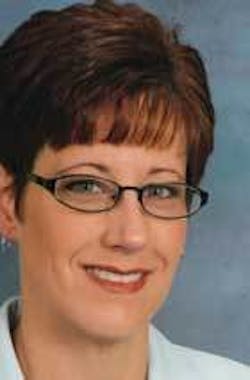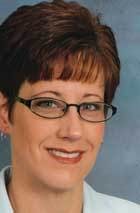Bariatric Surgery & Dental Care
by Ann-Marie C. DePalma, RDH, MEd, FAADH
Imagine being grossly overweight. Then add very serious medical issues, such as diabetes and hypertension. Diets and exercise don’t seem to work. Frustration sets in and you feel the only thing to do is to try gastric bypass or LapBand® surgery. With the obesity epidemic sweeping the country, as hygienists and dental professionals we need to educate ourselves about a topic that has been considered taboo until now.
Lori Brogna, RDH, a gastric bypass surgery patient herself, has developed a program titled, “Dental Aspects of Weight Loss Surgeries” (WLS). The program is designed to introduce the dental professional to the world of bariatric surgery. Patients must be educated on how this surgery will not only affect their overall health, but specifically their dental health. Dental professionals need to understand all of the intricacies of the procedure and its effect on the oral health of the patient.
Upon completing the program, the participant will:
- Describe weight loss surgeries (WLS): gastric bypass and LapBand®.
- Recognize criteria for surgical consideration.
- Understand pre- and postsurgical considerations.
- Understand the nutritional aspects of WLS, including nutritional deficiencies.
- Understand pharmacological considerations and drug/vitamin interactions.
- Identify long-term dental health concerns.
- Discuss patient concerns.
Patients who undergo WLS have unique gastrointestinal systems that require special care. Hygienists and the rest of the dental team are in a position to recognize and help treat long-term nutritional deficiencies that often appear initially in the oral cavity. In addition, the dental team needs to be aware of any pharmacological concerns that may affect the newly reworked digestive system. Lori designed the program not only to give a dental view of WLS, but also the systemic implications that occur.
Lori underwent gastric bypass surgery in 2004. In doing research on the topic prior to her surgery, she found that WLS patients struggle not only with nutritional deficiencies, but also need to be careful in the use of certain medications. She even began her own research by contacting patients who had undergone the surgery and asked if they had experienced any dental concerns following the surgery or any dental issues they thought might be connected to having WLS. The answer was a resounding, “Yes!” Even denture patients suffered dental complications; imagine how dentures would fit after having lost 100 or more pounds! Lori also contacted many dentists and hygienists and, surprisingly, medical professionals who had little knowledge of the field of bariatric surgery or bariatric patient care. A good example of medication involvement for dental professionals is the common use of NSAIDs within dentistry. Gastric surgery patients cannot take these medications due to their high potential of causing ulcers, which can be a devastating problem for the gastric bypass patient. No one whom Lori had spoken to within the dental or dental hygiene professions had heard of this contraindication and possible serious complication. As a result, Lori decided to design a program to educate her peers and others who may be treating WLS patients. The main premise of the program is to inform participants that questions about WLS should be asked on routine medical histories.
Lori’s program is presented in PowerPoint with a handout that she believes is important for participants to take back to their practices. She also loves to demonstrate products available to WLS patients and to incorporate her own story into the program. This personal experience makes an interesting and credible presentation. Lori enjoys reviewing course evaluations, because they allow her to know if points she wanted to impress have hit home or if things need to be improved.
Lori is a Ferris State University dental hygiene graduate and a program administrator of a dental assisting program, where she provides students with dental hygiene assisting experience while still practicing clinical hygiene. She is also a member of the ADHA. Lori is concerned about organized dentistry’s attempts to block hygiene’s growth to work areas beyond clinical hygiene, such as nursing homes, schools, and other public health settings. She enjoys the power that speaking to groups has to help her break her out of her shell and meet new people. Like many other presenters, she experiences the anxiety of hoping participants will learn something new or interesting during the presentation that they can incorporate in their own personal fashion the next day in their practices.
With the number of people undergoing WLS increasing, dental health professionals need to be aware of all possible dental and nutritional issues that arise following this major life change. As a patient herself, Lori knows the realities all too well. Every time she visits a dental or medical professional, she must explain why she cannot take a certain medication or if she needs to have a specific blood test to check her nutritional levels. She has learned to become her own best advocate in the health-care system. She is well on her way to achieving her goal to increase awareness of WLS and educate health-care providers about the unique needs of a unique group of patients.
For more information about Lori and her program contact: [email protected].
About the Author
After spending more than 25 years in private practice, Ann-Marie C. DePalma, RDH, MEd, FAADH, is currently a faculty member at Mt. Ida College’s dental hygiene program. She is a Fellow in the American Academy of Dental Hygiene and received a master’s degree in education in instructional design. Ann-Marie has written numerous articles and provides continuing education programs for dental hygienists and dental team members. She can be reached at [email protected].

